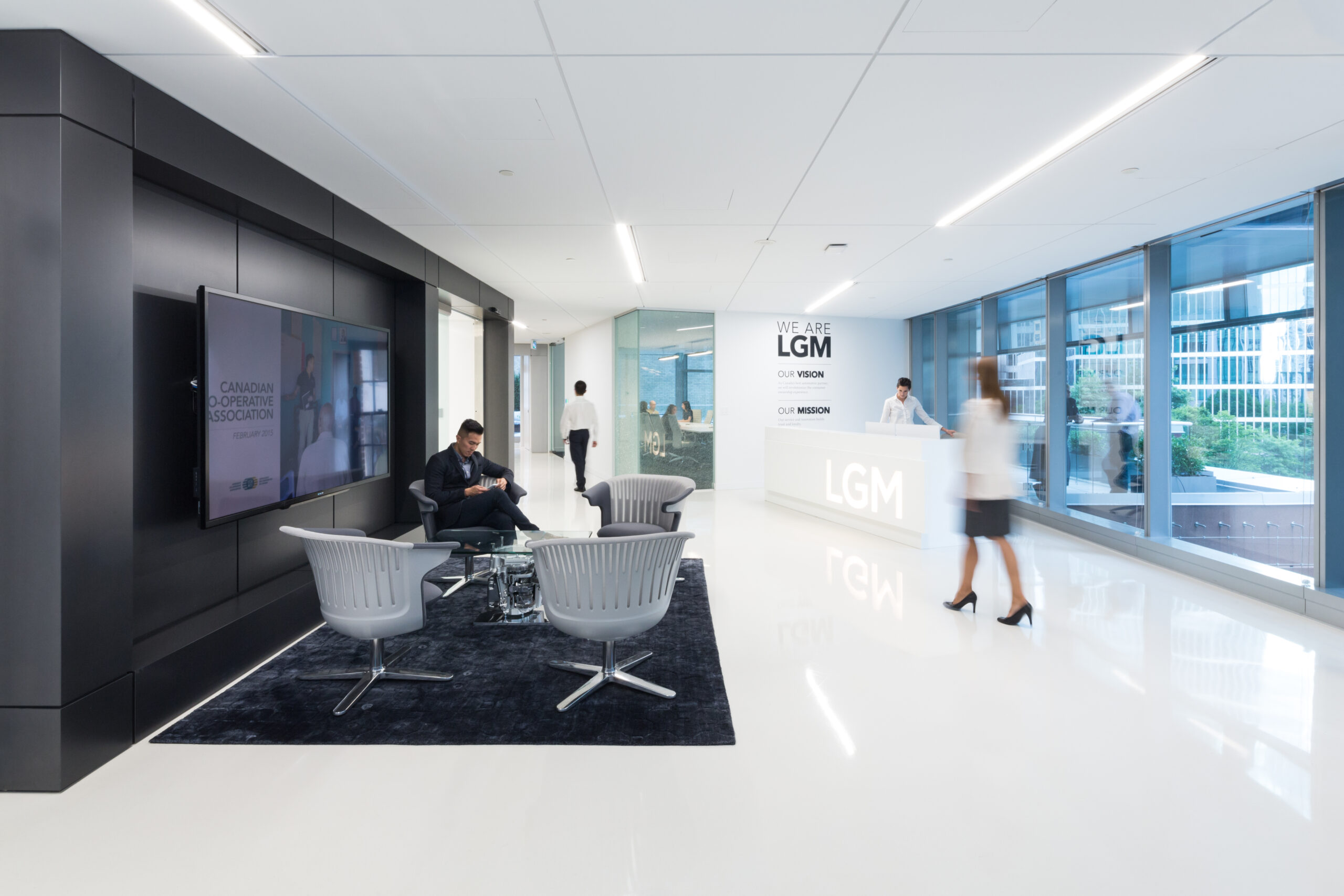As originally appeared in Canadian Auto Dealer on June 3, 2024.
Author: Carina Ockedahl
It’s no secret that retail’s old habits are shifting. Consumers want more transparency and control and they want efficient and modern processes. It’s a tune that Derek Sloan, President of Sym-Tech Dealer Services, has been singing for years.
Back in 2018, when Sloan was the vice president of sales and training, he discussed the need for F&I to move to a more compliant, full disclosure process that is more customer-focused. One that gives consumers the option to make choices. Fast-forward a few years and Sym-Tech is right on track with its new “daveplus” platform.
“The daveplus platform actually puts (more control) now in the hands of consumers, because it is now on mobile and on iPads,” said Sloan in an interview with Canadian auto dealer.
Dealers may remember that Sym-Tech had originally created a software called dave that provided web-based F&I solutions for the business office.
They then decided to enhance dave’s benefits with the development of daveplus, which incorporates J.D. Power Darwin Automotive’s F&I technology — things like analytics and direct-to-consumer digital technologies, among others.
The result is a new, next generation platform that is now more in-line with modern consumer demands.
“(Now) we take it a step further, where the customer can be at home, (they) bought the car, (and) the F&I manager contacts them and says, ‘I’m going to be sending you some information via your phone,’” said Sloan.
Rather than having a conversation with the customer about products that may or not pertain to them, Sloan said the information on the phone will continue with questions that use predictive analytics. This in turn is meant to help hone-in on the relevant protection products for the customer.
Dealers need to engage consumers digitally, even before they step into the showroom, to guide them along the buying journey.
“They have the power, they answer the questions, they submit the answers, and then as a return to that, again, it could be on their phone or we could even do it virtually on their computer with a live person,” said Sloan. “They will then be submitted options based on those questions.”
Those options, he added, will have recommendations in them that are based on customer and third-party needs.
That approach, of using technology to pinpoint exactly what the customer needs, is something that Jeff Schulz, Executive Vice President of Marketing at LGM Financial Services, is also focused on. He told Canadian auto dealer the company built a recommendation engine.
“Basically what that is, is the customer answers a couple of questions, they can go into the recommendation engine, which uses data and a bit of artificial intelligence logic, to basically recommend the right F&I product based on their needs,” said Schulz.
The engine provides the customer with a list of products that the AI believes is best suited to their situation. It’s all based on data and research, along with the AI algorithm. Schulz described it as “a nice little engagement device that the consumer can kind of play with and say, ‘okay, what makes sense?’”
That device has been tested on Secure Drive, and demonstrated to several OEMs that are interested in incorporating it into their websites.
Schulz said the teams at LGM are trying to teach the dealerships to engage the consumer early, bring them into the conversation digitally (before even stepping into the dealership), and share some information. “It gets them further along on that journey.”
According to Cox Automotive’s October 2023 Digitization of Car Buying Study, 12 per cent of the 393 franchise dealer respondents currently have their salespeople complete more of the car-buying deal upfront, including F&I, which then exposes the customer to add-on products earlier in the process. And 50 per cent of dealers are likely to make changes so their process is more seamless.
Another company that has been investing heavily in technology is First Canadian Financial Group. Will Wheaton, Vice President of Sales and Marketing, told Canadian auto dealer they even sent developers from an external software company into a Wheaton dealership for two weeks to conduct research.
The goal of the programmers, whose company had been helping them build tools, was to sit and watch deals so they could understand how the auto industry worked — and how the deal flowed from the sales floor through to the finance office. They needed to better understand the consumer experience.
“We had invested a lot of time in these software developers,” said Wheaton, adding that they ended up in-housing them about a year or two ago. “The company’s called Fabled Solutions and they’re now under the Wheaton Group of Companies banner.”
Wheaton said the company built a product for First Canadian Financial Group called FC Drive, which he described as a type of selling software. It was launched in 2019 as a type of beta product and received increased traction the following year.
“It allows you to build bundles and load them up beforehand so that you can quickly get the bundles in front of a customer,” he said, adding that “it allows for a hyperlink to be sent so that you can do a remote presentation with a customer.”
The presentation can be done via a two-screen system, such as a second monitor or the customer’s iPad or phone. The system will live-update changes to the F&I options, which the consumer can see, even from the comfort of their own home.
“Instead of just calling someone on the phone and trying to explain these products to them one by one, you could send them a link and it would bring up on their phone what these different bundles looked like,” said Wheaton.
The program has since evolved with the integration of in-deal recording, which allows (with consent) the ability to record what is going on on the sales side for both training and compliance purposes. The tool can both record and transcribe the conversation, and the dealership has access to both.
As for Jean-Claude Rabbat, his preferred “tool” is the in-person meeting: putting more choice in the hands of the consumer by listening to what they want, and then suggesting products that fit their needs.
It may not seem as high-tech an approach as other companies in the F&I space, but Rabbat is a coach (training and execution specialist) at Solution Globale Automobile, which is an authorized distributor for Sym-Tech Dealer Services. He already has the goods, has a team of 12 people, and he distributes those products his way.
“We do things differently in my 75 stores that I cater to. The way we do business is very different from the rest of the industry,” said Rabbat. “I don’t agree with the way things are done in the rest of the industry.”
So how does he advise doing things differently? Rabbat suggests first ensuring the consumer knows what s/he is doing in the F&I office. There should be a briefing, followed by a discovery of the customer’s needs. And the overall process is meant to be done in a respectful manner.
“I believe that by respecting the consumer, he will buy much more,” said Rabbat, who connects with customers in-person, by phone, and through Zoom.
“I strongly believe that consumers don’t know what they don’t know,” he said. “They know what they went through, and what they did not like.”
Rabbat said he never tells a client what they have to select. Instead, he works to understand what they really need, and based on those needs, offers them a “winning solution.” And that, to him, is how to put more choice in the hands of the consumer.
His approach, along with the other F&I providers, highlights a willingness to adapt on some level to shifts in consumer wants and needs in an evolving industry. It is a common theme that iA Dealer Services is also attuned to.
The automotive industry’s evolution towards automation and AI technologies is revolutionizing the customer experience, shaping the future of auto retail.
Scott Tanner, Senior Director of National Sales Strategy and Market Intelligence, said the company’s response to the needs of OEMs by presenting online options to their customers is one example of how they are adapting. “These initiatives are just one of the many proactive steps we have taken to align ourselves with the evolving needs and preferences of consumers.”
He said the automotive industry is currently undergoing a profound transformation, and that AI and automation technologies are gaining widespread recognition for their potential to revolutionize the customer experience. He offered ChatGPT as an example, noting that its integration into business has been “so seamless that it has fundamentally changed the way we communicate.”
“Dealer Services will be leveraging Robotic Process Automation (RPA) to blend human interaction with automated digital experiences,” said Tanner, adding that “RPA will enable us to transform processes and further enhance our customer experience”.
This, he said, is an exciting time for the automotive industry. “We are all evolving and embracing new innovations at an unprecedented pace, significantly reducing the time required for indoctrination of these concepts into everyday life.”
Tanner believes that automation in the dealership and F&I space is poised to revolutionize the vehicle offering and buying journey, and that the transformations that this transition will bring will ultimately help shape the future of auto retail.


